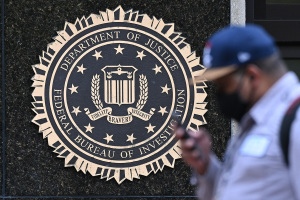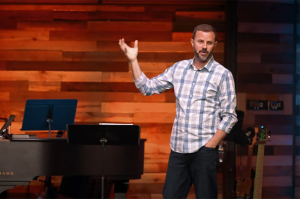Statistics Shows the Kirk Faces Membership Crisis
Statistics from a new investigation taken place in Scotland reflected the challenge of churches nowadays. While the Church of England faces the crisis of decreasing church attendants, similar situation is threatening the Scottish church.
The investigation report is done by the Church of Scotland’s panel of doctrine; the result will be submitted to the General Assembly next month.
Now the total number of members in the Church of Scotland drops to its lowest point at 571, 000. Although nearly two million people claim their “current religion” as Church of Scotland, only about 24, 000 of the membership worship regularly.
The latest membership figure compares with just under 591,000 the previous year. It represents almost half the membership of 50 years ago.
All these highlighted the membership difficulties facing the Church of Scotland, one of the churches having longest history. According to the report, religion in Britain is characterised by some as "believing rather than belonging".
A counterargument, however, is suggested by The Rev Dr John L McPake, convener of the panel on doctrine. He opposes the suggestions that Scotland was becoming less of a religious nation, and stresses the fact that two million people were allegiant to the Kirk.
Dr McPake said, "Like others, we would like to see our membership figures be maintained rather than decline. The Church clearly does have many more people who want to identify with it in some way and we ought to be in the business of communicating with them."
The report maintains some people’s fear to the Kirk. For instance, people generally think that the Kirk is too much like “an exclusive club”. Therefore, in order to avoid to be typecast as “a religious person without a mind of their own”, they will not admit their membership but willing to keep their Christian faith.
In this materialistic modern world, which seems to be incompatible with Christianity’s modest teaching, people are reluctant in living a life of discipleship. The report adds, "People know what they want from the Church: a good funeral, a happy wedding, a celebration of a birth, but resist when the Church tries to take this further and seems to want to take over their lives."
In the middle ages, the Church of Scotland adopted the Roman practices of work and worship. The Reformation in Scotland came to its head in the 1560s, and was modeled on John Calvin's Geneva. By the end of the 16th century, the Protestant Church of Scotland had developed into a Presbyterian Church, with a system of courts (today General Assembly, presbytery and kirk session), and a strong tradition of preaching and Scriptural emphasis.
As soon as the Presbyterian Church is facing the dilemma, the Catholics and the Episcopal are no difference. The Catholics Church in Scotland has 750,000 baptised Catholics, of whom about 220,000 attend every week. The Scottish Episcopal Church has total membership of about 44,000. The number of active members is about 30,000.
On the optimistic scenario, the report mentions that “when faced with declining communion rolls, a smaller membership will be a more committed one following ‘pruning’ of paper members.”




























